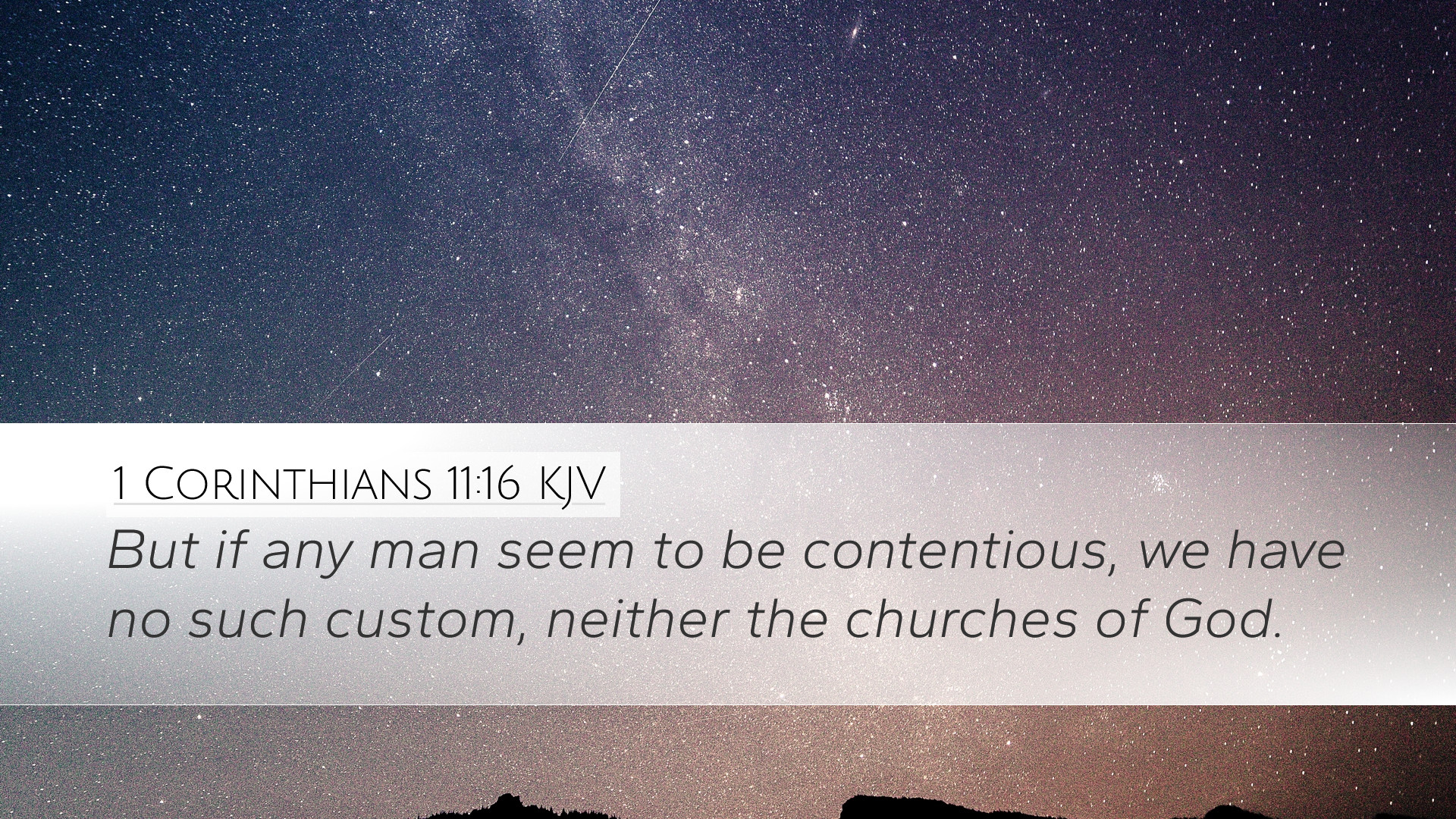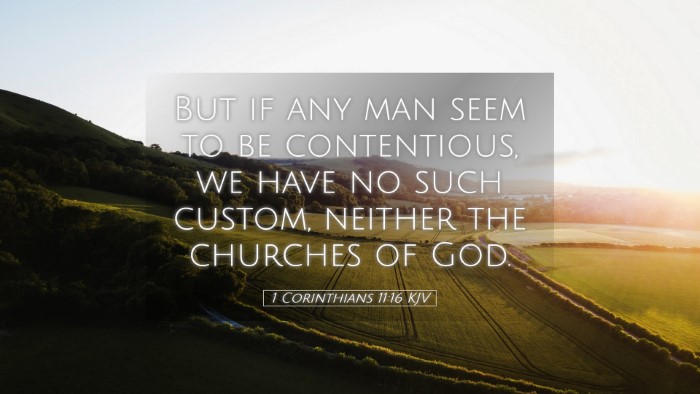Commentary on 1 Corinthians 11:16
1 Corinthians 11:16 states: "But if any man seem to be contentious, we have no such custom, neither the churches of God." This verse serves as a concluding remark to the Apostle Paul's teachings on head coverings during worship. Below, we synthesize insights from various public domain commentaries to provide a thorough understanding of this significant text.
Context and Overview
The Apostle Paul, in this passage, addresses issues surrounding proper decorum in worship and the cultural practices regarding head coverings. The Corinthian church, having been influenced by surrounding Greek culture and practices, faced confusion regarding gender roles and symbols of authority. It is crucial for pastors, students, and theologians to understand the cultural backdrop to appreciate the weight of Paul’s teachings.
Exegesis of the Verse
Paul asserts that if someone is inclined to be contentious about these directives, the church does not hold such customs. This declaration emphasizes the consensus of the church’s practices, thus reinforcing his point that the observance of head coverings aligns with the traditions maintained by the early churches.
Interpretation of 'Contentious'
Paul’s use of the term "contentious" indicates a combative spirit regarding church practices. Albert Barnes notes that this demeanor disrupts unity and leads to discord within the community, which should thrive on mutual respect and adherence to apostolic teaching.
Custom and Tradition
When Paul refers to "no such custom," he highlights that contentious attitudes are not aligned with the established practices of the early churches. Adam Clarke explains that local customs should not negate spiritual truths, and thus, any argument rooted in personal grievance rather than Scripture undermines the authority of God's order.
Church Authority and Order
Matthew Henry points out that this passage emphasizes the importance of maintaining order in the house of God. The practice of head coverings symbolizes authority and submission, essential elements of worship that should not be contested lightly.
Historical and Cultural Insights
Understanding the historical background of Corinth enhances our interpretation. This city was known for its immorality and diverse beliefs, leading to various practices that contradicted Christian values. Paul, writing to a congregation deeply rooted in such a context, implores them to adhere to divinely ordained structure, which carries implications for contemporary church practices regarding gender roles and expressions of authority.
Theological Significance
The theological implications of 1 Corinthians 11:16 extend beyond mere social customs. They fundamentally challenge believers to seek harmony within the body of Christ. Paul promotes a theological framework that prioritizes unity under Christ's headship. The observance of customs reflects deeper spiritual realities that align with God’s design for worship and community life.
Applications for the Church Today
For modern pastors and theologians, several applications arise from this verse:
- Preservation of Unity: Emphasizing cooperative behavior within the body of believers can mitigate conflicts surrounding diverse interpretations of customs.
- Cultural Relevance: Understanding local customs while holding fast to biblical truths fosters a church environment that is both relevant and respectful of God's design.
- Authority Recognition: Advocating for a clear understanding of spiritual authority is essential in guiding congregations towards biblical submission in all areas of life.
Conclusion
In conclusion, 1 Corinthians 11:16 serves as an important reminder for the church regarding tradition, authority, and unity. By combining insights from Matthew Henry, Albert Barnes, and Adam Clarke, we gain a fuller understanding of the implications this verse has for spiritual leadership and communal worship. While cultural practices may evolve, the call to live harmoniously under God’s truth remains timeless.


